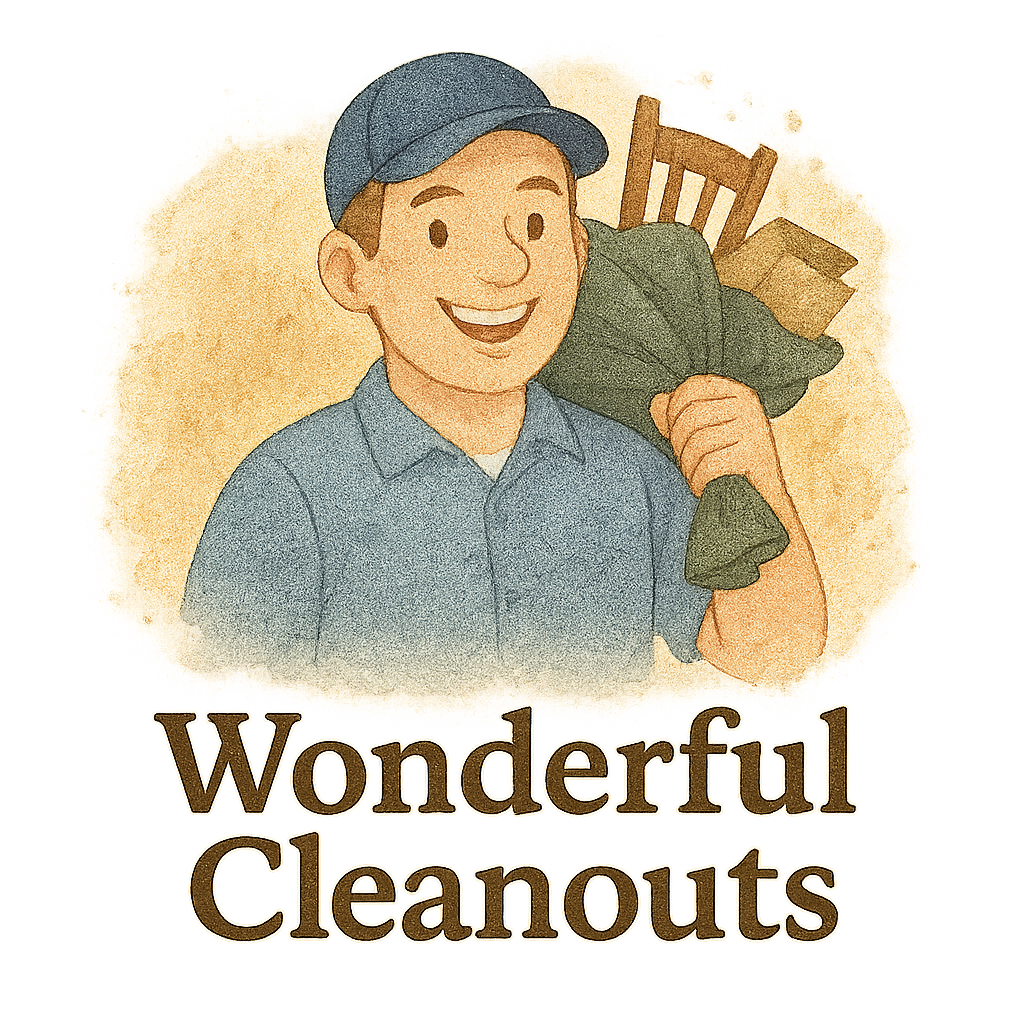Introduction to Estate Cleanouts
Estate cleanouts can feel like a massive undertaking—both emotionally and physically. Whether you’re handling the estate of a loved one who passed, downsizing for retirement, or clearing out years of accumulated belongings, there’s a lot to uncover. You’d be amazed at the variety of items that surface, many of which carry both sentimental and practical value.
Why Estate Cleanouts Matter
Estate cleanouts aren’t just about getting rid of stuff—they’re about transitioning. It’s closing one chapter and making space for another, and doing it with respect and efficiency is essential.
Emotional and Practical Challenges
Sorting through someone’s possessions can stir up powerful emotions. You might find yourself laughing at old photos, crying at forgotten love letters, or stressing over what to keep.
Professional Help Can Simplify the Process
This is where calling in the pros can save the day. Services like estate cleanouts provided by Wonderful Cleanouts streamline the process so you can focus on what matters most.
Item 1: Furniture Pieces
Big, bulky, and often outdated—furniture is usually the first and most obvious thing you’ll run into.
Why It’s Common
Many estates have decades of accumulated pieces, from vintage couches to wobbly dining tables. Furniture sticks around for generations.
What to Do With It
Sell it, donate it, or call in a residential cleanout team to remove what no longer serves a purpose. Pro tip: old wooden furniture may have hidden value if it’s antique.
Item 2: Old Clothing
Boxes and closets full of jackets, dresses, and shoes—some never even worn.
Sorting Tips
Start by making piles: keep, donate, toss. Focus on quality, condition, and potential reuse.
Donation vs Disposal
Charities will take gently used items. Anything torn, stained, or outdated can go straight to textile recycling. For efficient sorting, garage and attic cleanouts can help clear out storage spaces where clothing often accumulates.
Item 3: Important Documents
From tax records to birth certificates, paperwork often hides in drawers and filing cabinets.
What to Keep and Shred
Hold onto legal docs, financial records, and anything identity-related. Shred the rest to avoid identity theft.
Protecting Sensitive Information
Stay safe—use a cross-cut shredder and lock up essential files. For more on cleanout safety, check out tips under safety.

Item 4: Antiques and Collectibles
Grandma’s porcelain dolls or Dad’s old coin collection—these are treasures waiting to be discovered.
Hidden Treasures or Just Dusty?
Not everything old is valuable. But some antiques might surprise you. It’s worth getting a professional appraisal.
Valuation Tips
Research, consult antique dealers, or use online forums. You don’t want to toss out a gem!
Item 5: Kitchenware and Appliances
You’ll find everything from avocado-green blenders to whole sets of china.
Still Useful or Ready to Recycle?
If it works, donate it. If it’s broken or outdated, recycle it responsibly. This falls under efficient residential cleanouts.
Item 6: Books and Magazines
Bookshelves bursting with novels, encyclopedias, and vintage issues of Life magazine? Yep, common in estate cleanouts.
What’s Worth Keeping
Keep signed books, family bibles, and first editions. The rest? You’ve got options.
Libraries, Charities, and Recycling Options
Local libraries and secondhand stores often accept donations. If they won’t take them, recycle! Explore more under tips.
Item 7: Photographs and Memorabilia
These are the emotional core of an estate.
Preserving Family History
Photos, scrapbooks, awards—they tell stories. Don’t toss them.
Digital Backup Ideas
Scan them. Save to cloud storage. Share with family. You’ll thank yourself later.
Item 8: Garage and Attic Finds
Sometimes the most valuable or dangerous items are hidden away in the garage or attic.
The Hidden World of Forgotten Items
You might find power tools, paint cans, or even vintage toys.
Safety Tips During Cleanouts
Wear gloves and a mask, especially in dusty areas. Garage cleanouts and tools must be handled carefully. Look out for hazardous materials.
How to Handle a Cleanout Efficiently
You don’t have to do it all alone.
Hiring Estate Cleanout Professionals
A reliable service like Wonderful Cleanouts can manage everything from hoarding cleanouts to delicate estate transitions.
Planning and Organizing Ahead
Start with a checklist, enlist help, and tackle one room at a time. Planning ahead will save your sanity.
Conclusion
Estate cleanouts are a journey—an emotional one, yes, but also a practical necessity. The items we’ve talked about today are just the tip of the iceberg. Each estate tells a story. As you sift through the past, you’re paving the way for a fresh future. With professional help and smart planning, you can turn what seems like an overwhelming task into a meaningful, even healing, experience.
FAQs
1. What is the most common item found during estate cleanouts?
Furniture is by far the most common—especially large, outdated pieces that take up a lot of space.
2. Are there services that help with organizing estate cleanouts?
Yes, professional companies like Wonderful Cleanouts handle everything from planning to execution.
3. Can I sell items found during estate cleanouts?
Absolutely. Items like antiques, collectibles, and usable furniture can often be sold.
4. What should I do with personal documents I find?
Keep anything sensitive and shred the rest to protect identity information.
5. How do I know if an antique is valuable?
Have it appraised by a professional or consult antique forums and valuation guides online.
6. What happens to items I don’t want?
You can donate, recycle, or hire a cleanout service to haul everything away.
7. How do I handle hazardous materials found in garages or attics?
Use gloves and masks, and consider hiring a pro for proper disposal—especially for paint, chemicals, or old tools. Learn more under gear and warehouse.

